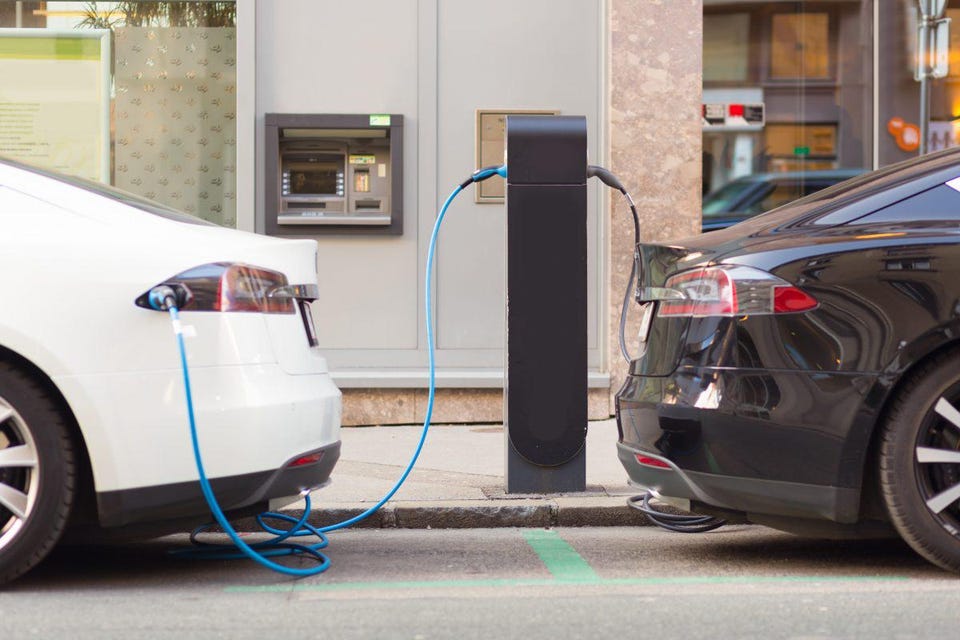
California offers tax rebates to help you save money on electric car purchases and leases. These incentives are designed to encourage consumers opting for zero-emission cars. There are many rebates, from fleet acquisition goals to utility rates reductions. You may also qualify for grants if your home is in a high-pollution zone and you need assistance with paying for your new vehicle.
California Department of Motor Vehicles offers two incentives: the Clean Fuel Reward Program (for clean fuel) and the Clean Air Vehicle Rebate Program (for clean air vehicle rebate). Clean Fuel Reward offers consumers who have bought an electric vehicle a rebate. In order to qualify for the rebate, the car must be registered and operated in California for at least 30 consecutive months.
Currently, the state has approximately 563,070 eligible electric vehicles. Some of the rebates have been phased out. The Hyundai Sonata Plugin Hybrid, for example, was dropped from the eligible vehicle list.

There are still higher rebate amounts for drivers with lower incomes. Lower-income participants could receive up to $4,500 for battery-powered EVs or $3,500 for plug-in hybrids. You can also get a higher rebate for fuel-cell EVs.
Depending on your vehicle choice, you might be eligible for the California clean automobile rebate and the federal tax credits. You can receive a maximum credit up to $7,500 if you do. You will need to fill in a form to prove your eligibility.
New York State also offers tax incentives for electric vehicles. It offers a point-of-sale rebate. All car buyers in the state can take advantage of this program. This credit can be combined with the Federal EEV/PHEV Credit to make a new electric vehicle more affordable for those who have low income.
Oregon offers both new and used electric vehicles a tax rebate. New EVs can be purchased for as much as $2,500. There are also lower rebates that are available for households with low income. An EV can be a smart investment that will help you reduce your monthly utility bill. Another option is to lease an EV, which can help you to pay for your car over a longer period of time.

On March 21, 2017, Drive Clean Rebate was established to inform and educate about the various types EVs. Additionally, the program supports Governor Andrew Cuomo’s goal to reduce greenhouse gas emissions 40% by 2030.
While there are many ways of saving money on an electric vehicle, rebates can be the most cost-effective. It's easy to find information on all of the programs, but it can be hard to determine which program will work best for you. Before purchasing an EV, it's important to ask your dealer about the incentives and rebates that are available in your state.
You should look at your income and the income limit for clean vehicles to determine if you are eligible for an electric vehicle rebate in California. Generally, you can claim the rebate on your annual tax return. Alternatively, you can register for a waiting list.
FAQ
What is the difference?
Both are related, but they are not the same. An automotive technician maintains cars, while a mechanic repairs them.
A mechanic must be skilled in manual dexterity and able to complete simple tasks quickly. They must also be able to diagnose problems accurately and repair them effectively.
An automotive technician needs to be more technically skilled than a mechanic. They must be capable of reading blueprints and using tools such as drills, wrenches, etc.
They must also be able to carry out complex procedures safely. They must also be familiar with different types of engines and electrical systems.
They must also be capable of understanding how parts interact.
As a result, mechanics typically make less than technicians. Both jobs offer many possibilities.
How long is an apprenticeship for an automotive mechanic?
The apprenticeship to become an automotive mechanic takes about three years. It includes two years of school and two years as an apprentice. The first year of training is spent in the trade. This includes theory and practical skills as well as safety procedures. This year, you will also learn how to safely and efficiently use tools. After the completion of the first year, you will spend another year on the job training. Here you'll gain valuable experience in different trades. These years will offer you the opportunity to attend formal classes.
The final year of this program is spent in obtaining qualifications and becoming certified in your field. These include NVQs, which are obtained after passing industry-specific exams. In addition, there are HNCs (Higher National Certificates) that cover general subjects such as management, business administration, and customer service. City & Guilds certificates can be obtained for individuals who want to learn certain trades.
What do I need to know about car mechanics?
Auto mechanics don't require any knowledge. It's enough to know how to fix things. This is why most people get started with simple jobs such as changing brake pads or tires. Then they move on to more difficult repairs.
You will need to understand written instructions, read diagrams and follow the basic rules of good practices. It is also important to know how to determine if parts are damaged or need to be replaced.
You should not attempt to fix vehicles without proper training and guidance. This is especially true if you deal with expensive components such as engines or transmissions.
Although you won't have to know much about automobiles, you must be familiar with the basics of mechanical engineering as well as physics. This involves understanding how engines work and how brakes work.
It is important to realize that you must be ready for all types of situations. You might be required to work on a vehicle that was involved in an accident. You will also need to be able to deal with accidents and breakdowns.
Finally, you must be willing to learn new skills quickly. In order to be able diagnose and fix problems, you will also need to know how to do simple maintenance tasks such tightening bolts.
Is it hard to be a mechanic apprentice?
It's not simple, but you can learn quickly and there are many avenues for advancement.
You will need to be patient and persevering. You will also need to be able fix cars, trucks and motorcycles.
Customers and family members can put a lot pressure on you. They want you to succeed. But you should never feel pressured into making decisions you aren't comfortable with.
It could be a great job choice if you love fixing cars. This is a job that allows you to earn a decent income and grow your business.
But you may prefer another path. You might consider becoming a technician in this instance.
This requires you to use your technical expertise in support of other workers. You might be able to assist technicians in troubleshooting problems or teach them new techniques.
Another option is to become a service advisor. As a service advisor, you will provide assistance and advice to customers as they bring their car to a garage.
Your choice is based on what you choose to do. There are many choices available and you can choose what suits you best.
Statistics
- The U.S. Bureau of Labor Statistics (BLS) reports that the job outlook for automotive service technicians and mechanics is expected to decline by 4% from 2019 to 2029. (indeed.com)
- 52% of Mechanics in the United States think their salaries are enough for the cost of living in their area. (indeed.com)
- Apprentice mechanics earn significantly less hourly than mechanics who have completed training, with a median wage of approximately $14.50 an hour, according to PayScale. (jobhero.com)
External Links
How To
How to protect yourself from auto mechanic scams
Scamming by auto mechanics is a big problem for consumers. The average consumer spends $1,500 per year on car repairs. This is a huge opportunity for people to take advantage of it. You can avoid becoming a victim if you are able to identify the signs. These are some tips that will help you recognize a scammer before he or she takes your money.
-
Never pay upfront. Paying upfront to someone is a sign of fraud. When work is complete, always request payment. The Better Business Bureau (BBB), 1-888-322-8138, can help you determine if the item is legitimate. They can provide guidance and assistance.
-
Ask for references. You can contact former customers to confirm that you are dealing with a trustworthy service provider. Check online reviews. It's important that any company you deal is reputable.
-
Do background checks. It is a good idea to do background checks before hiring. Check the BBB website to find out if there have been any complaints. Also, confirm that the vehicle's registration number belongs the owner of the business.
-
Don't hesitate to walk away. Even if a business appears legitimate, scammers will try to get you to pay too much. If you feel you have been taken advantage of, don't hesitate and leave. There are many other businesses that you can choose from.
-
Avoid "free" services. Many companies offer free inspections or estimates. These companies are known for charging exorbitant prices later. Ask about additional charges before you sign anything.
-
Avoid being pressured. When a company offers you a great deal, it's because they think they can get away with charging you less than you deserve. You should not be forced to buy anything if you find yourself in this situation.
-
You should look for high-quality products. You want to make sure that the repair shop uses high-quality parts. If you need to replace brake pads, you don't want to go to a shop that uses cheap pads. Instead, shop for brakes.
-
Get multiple quotes. It is important for you to compare prices among different shops. When you do this, your chances of finding a fair and affordable price are higher.
-
Keep records. It's important to keep track of all the details surrounding your repair. You should keep track of all details, including receipts, invoices, warranties, and other documentation. Also, keep track of any telephone numbers and addresses you receive.
-
Stay informed